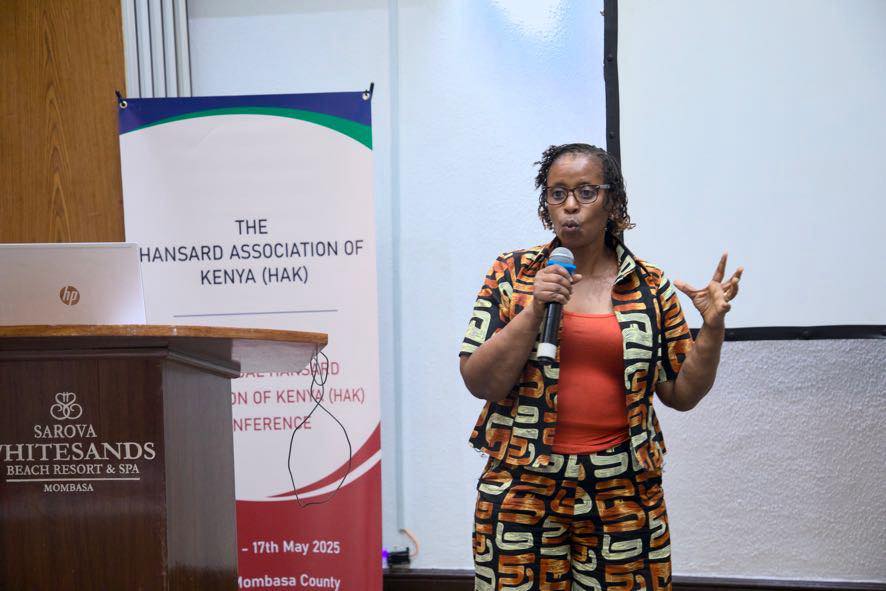
By PBS
Speakers at the ongoing Hansard of Kenya Association conference have strongly advocated for the increased use of Kiswahili in legislative processes, emphasizing its transformative potential in promoting good governance, transparency, and citizen engagement.
On the second day of the forum, various contributors underscored that Kiswahili, as a language widely spoken across the country, can play a critical role in enhancing inclusivity and public participation in governance.
“Historically, the use of English in legislative proceedings has limited access for many Kenyans,” said Dr. Christine Asiimwe of the East African Kiswahili Commission. “Kiswahili bridges this gap and enhances transparency in parliamentary processes, thereby fostering greater citizen involvement.”
Dr. Asiimwe's presentation, which explored the impact of Kiswahili on governance, argued that incorporating the language into legislative affairs would not only promote national unity but also encourage a more inclusive and participatory democracy.
Moi University lecturer Dr. Kenga Mumbo called on County Assemblies to take proactive steps in translating legislative documents into Kiswahili. “Let us not view Kiswahili as a language of the lowly. It is a language for all, and all legislative tools should be translated to enable the majority of Kenyans to follow proceedings,” he urged.
Dr. Mumbo praised the translation of Parliamentary Standing Orders into Kiswahili—an achievement he termed a significant milestone. “Kiswahili has been a national language since 1964 and became an official language in 2010.
The adoption of Kiswahili Standing Orders in Parliament in 2020 marked a historic step in the development of the language,” he noted. However, he expressed concern that many Members of Parliament have yet to embrace the actual use of Kiswahili in their deliberations.
Meanwhile, Parliamentary Broadcasting Unit Technical Manager Ms. Rachael Nakitare emphasized the role of the Hansard in fostering transparency and accountability in governance.
“Hansard provides citizens with detailed records of legislative proceedings, allowing them to scrutinize the actions and decisions of their representatives,” she said. “It acts as a unilateral record that helps counter misinformation and build public trust in legislative processes.”
Ms. Nakitare added that by documenting lawmakers’ statements and actions, Hansard holds them accountable to their electorate and can serve as evidence in disputes, including impeachment proceedings.
The conference continues to explore how language and documentation can support stronger democratic practices in Kenya.